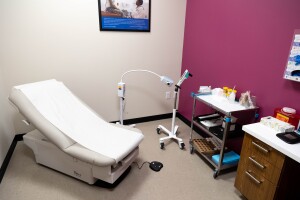Texas’s six-week abortion ban has significantly affected minors seeking reproductive health care, according to a recent study published in the American Journal of Public Health. The analysis highlights that individuals under the age of 18 encountered more barriers to obtaining abortions compared to older demographics following the enactment of Senate Bill 8 in 2021.
Researchers examined the impact of the law during the nine months after it came into effect, which prohibited abortions once fetal cardiac activity is detected, typically around five to six weeks into pregnancy. This period was compared to the same September to May timeframe from 2020 to 2021, prior to the law’s implementation.
The findings reveal a staggering decline in facility-based abortions among Texas minors, with a decrease of nearly 60%. In contrast, adults aged 25 to 29 experienced a decrease of approximately 42%. The study also considered Texans who sought abortions in neighboring states, including Arkansas, Colorado, Kansas, Louisiana, New Mexico, and Oklahoma, during this timeframe.
Traveling out of state for abortions became increasingly common. Just 62 minors from Texas traveled out of state for abortions during the September to May period before the ban. After the law took effect, that number surged to 366. Despite this increase in out-of-state procedures, the overall number of abortions among minors still dropped by 26%, compared to a 17% decrease among adults aged 25 to 29. Additionally, young adults aged 18 to 24 saw a reduction of nearly 20%.
Dr. Kari White, a co-author of the study and affiliated with Resound Research for Reproductive Health, commented on the challenges faced by younger individuals. She noted, “This is also a group of folks who are just starting out on their own. They may still be living with a parent. They don’t have a lot of extra financial resources. Maybe they don’t even have a car to be able to get someplace out of state.”
The implications of these findings are further underscored by a separate analysis from the University of Houston, which indicated a slight increase in births among teenage mothers in Texas following the enactment of SB8.
Since the study’s examination period, new abortion laws have been introduced. Following the U.S. Supreme Court decision to overturn the federal right to abortion in 2022, abortion became illegal in Texas, with the exception of certain medical emergencies. Nearby states have also implemented stricter abortion bans.
Dr. White expressed concern that young people now face even greater obstacles in accessing facility-based abortion care. She stated, “Rather than being able to go to Oklahoma for abortion care, people are now facing the closest clinic being in Kansas or Colorado.”
The current research does not account for the rise in medication abortions, which have gained popularity in recent years. Dr. White noted that data on the use of abortion pills segmented by age group is currently unavailable. However, she emphasized that facility-based care remains the necessary option for some women, depending on health factors and the stage of their pregnancy.
As reproductive health access continues to evolve in Texas, the impact of legislative changes on vulnerable populations, particularly minors, remains a critical area of study and concern.






































































